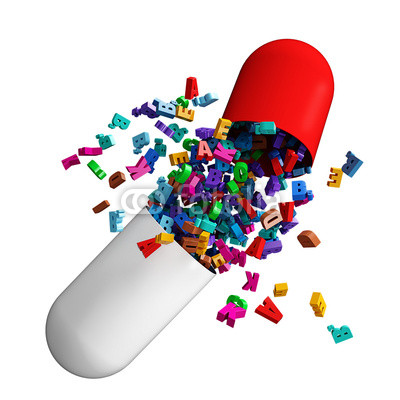China’s
active pharmaceutical ingredient (API) industry is facing a monopolized situation
nowadays, due to strict regulations in the manufacturing of API’s, like
vitamins. This has led to elevating prices of vitamins, which are supposed to
be sold in cheap drugs, in the past years. Manufacturers are urging once more
to change the monopoly in the industry to enable cheap and transparent drug
prices.

Source: Pixabay
In
the beginning of March 2017, the 9th National Pharmaceuticals
Industry Symposium took place, in which the mentioned price surges of
pharmaceuticals has been discussed. The API manufacturers were complaining
about surging prices and asked for new regulations to abandon the current
monopolized situation of China’s pharmaceuticals industry.
The
high prices of vitamins are forcing manufacturers to lower the production of
commonly cheap drugs in China. Hence, these situation leads to a lower supply
of the drugs, which increases their prices dramatically. This trend has led to
the call for changing regulations to guarantee a clear drug pricing system in
China.
Currently,
API manufactures need an API production license, issued by the government, to
be allowed entering the market in China. In addition to that, so called Good
Manufacturing Practice certificates are needed as well. The problem is, that
less enterprises are approved for these licenses, which keep the number of
manufacturers low and creates the monopolistic situation.
This
system is demanded to be changed, to make it easier for new manufactures to get
the permission of producing and selling pharmaceuticals, especially the needed
cheap drugs. To achieve this, API’s should be excluded from the national drug
management system and production guidelines could be implemented, which ensure sufficient
supply of pharmaceuticals.
Furthermore,
to enable faster applications for production licenses, the existing
administrative review system shell be exchanged with a more advanced Drug
Master File system. Implementing such a new system will definitely reduce the
working time in application processes and speed up production of manufacturers.
The main idea behind this system is an universal document, which will be
prepared by the manufacturer, stating information about facilities, processes,
packaging etc., and submitted to the appropriate authority.
According
to CCM, the possible implementation of the new system would have a significant
impact on China’s current big vitamin manufacturers. Stronger competition will
lead to falling prices and probably stimulate more investments and innovations.
Monopolistic situation
The
market situation of vitamin E is a good example for the high monopolistic situation,
not only in China, but worldwide. For this vitamin, the four biggest player
account for more than 90% of the global supply. The enterprises are Zhejiang
Medicine, Zhejiang, NHU, Royal DSM, and BASF.
For
China, the price of vitamin E showed the beginning of surge in March 2016,
after a depressing year in 2015. Insufficient supply of raw materials for
vitamin E boosted the price rise even more. The last price rise was made in March
2017 by Zhejiang NHU, raising quotations by 30% again, according to CCM’s price
monitoring.
China
also inherits the largest vitamin B2 producer worldwide, namely Guangji
Pharmaceutical, who is accounting for global sales of 55%. The company has increased
prices several times in 2016, due to production suspensions and marketing
strategies. A report by the company states “We adheres to our marketing
strategy in controlling supply and increasing prices, and managed to realise
the optimum balance.”
Speaking
in general, the monopolistic situation is a huge thorn in Chinese manufacturers’
side. The production license for vitamin E was only issued to 8 manufacturers
in China yet, while Guangji Pharmaceutival is even the only one holding the
license for vitamin B2 production currently. With the change of the current regulations,
the monopoly could be weakened to establish more competition and price
regulation in China’s API industry.
API
Active
pharmaceutical ingredient (API) is the term for a therapeutically active
ingredient or material combination, which is used in producing drug products. The
production of active pharmaceutical ingredients is a highly technically
demanding process. Currently, the worldwide active pharmaceutical ingredient
market is elevating due to the increased demand for drugs, which can be
explained by the overall aging population in industrialized countries. This is increasing
occurrence of chronic diseases as cancer and diabetes.
About CCM
CCM
is the leading market intelligence provider for China’s agriculture, chemicals,
food & ingredients and life science markets.
Do
you want to find out more about the vitamins market in China? Try our Newsletters and Industrial Reports or join our professional online platform today and get insights in Reports, Newsletter, and Market Data at one place.
For
more trade information of vitamins, including Import and Export analysis as
well as Manufacturer to Buyer Tracking, contact our experts in trade analysis to get your answers today.